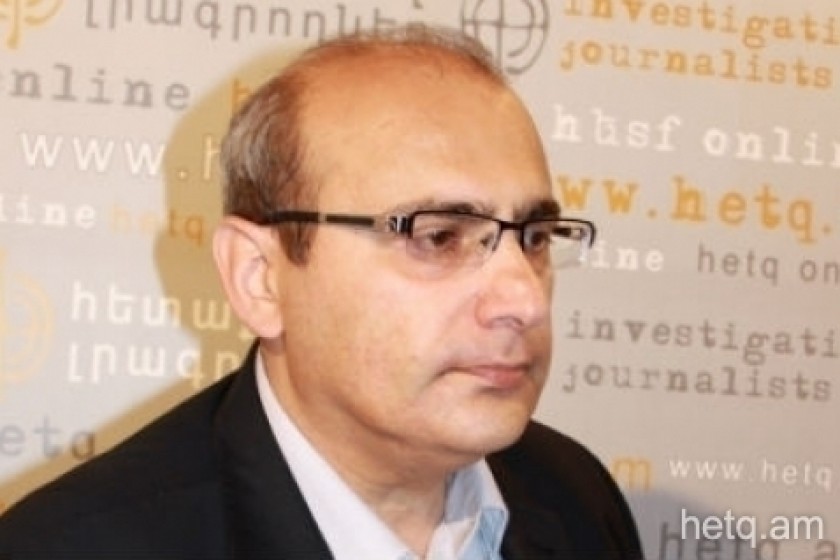
Political Analyst Doesn't Rule Out Kocharian's Return to Politics
Political analyst Stepan Danielyan responds to questions from Hetq, following an interview with former president of Armenia Robert Kocharian published on his unofficial website [AM] where he criticizes the current administration, exchanging harsh words with the current prime minister, Tigran Sargsyan.
Mr. Danielyan, Robert Kocharian's interview has become the subject of discussions today. His return to politics was raised back at the end of last year. In your opinion, why did Kocharian break the relative silence?
Everything is more than obvious. Back during the last presidential elections Kocharian sent a brief public message to [current president] Serzh Sargsyan, which overtly stated that he is preparing to become president after Sargsyan. Moreover, he clearly implied that he is ready to ensure Sargsyan's safety after office, citing personal and genealogical justifications why he would do that. And after that, to discuss what his intentions are and make senseless assumptions is perplexing. He said almost the same thing in 2008: do you remember his intention not to become the youngest pensioner? I repeat: his intentions are more than obvious.
Is Kocharian's return practically possible, and what will the possible developments be afterwards?
This is Serzh Sargsyan's last term. He has to prepare his successor during this time. That is the procedure of authoritarian states, where they are forced to ensure the inheritance of power. But he's been unsuccessful and, I think, he won't be successful in this matter. The reason is simple: Armenia will need crisis management soon, and in such conditions, the possible successor should've been a charismatic figure, who would be able to mobilize the public and the political and economic nomenclature. No such person exists in his circle.
I think that Serzh Sargsyan doesn't have another option. It's unlikely he'll get security guarantees from outside [the country]. He is an acceptable figure for neither the West nor the North, and not even the South. Just as he made a u-turn in foreign policy, he can do the same in domestic politics, making it a fait accompli for his supporters. As for Kocharian, he can control the nomenclature, and as for the public, that's another conversation.
There are already numerous negative opinions voiced online about Kocharian's possible return. The page of March 1* is not yet closed. On the other hand, there is the positive attitude of the nomenclature you mention. What do you think — will the impact be great?
The March 1 page, of course, is not closed. This is a tough question particularly for HAK [the Armenian National Congress] and the other political parties that were at the barricades in 2008. They can't bypass this issue, but many who were also at the barricades, it seems, have forgiven Serzh Sargsyan and today, either directly or indirectly support him. I don't think that Armenia's political parties are so principled. In Armenia, parties unite around [specific] individuals or come out against [specific] individuals. They are coexistences based on personal or party interests. Ideas and principles are alien phenomena for Armenia's political forces.
And what about the public? After all, today we can say that we have a certain segment of civil society that is independent of political parties.
Yes, there are civic initiatives today that are independent from government and during these years that is one of our unique bright spots, but those initiatives are independent not only from government, but also from each other. It's not always that those groups are united with each other. Newly forming civic groups have been unable to sit together around a roundtable and make decisions. Perhaps it's too early to talk about the fact that civic initiatives have become a serious factor and can unite the public. Civil society is still in its development stage. It's true, the government cannot control them, but it can still split them. This is one of the main weaknesses of the civic movement.
Is Kocharian's return likely? What can prevent it?
In Armenia, insofar as civil society is not established and the political movement is not transformed, until government and business are not separate, everything is possible. I don't rule out any developments.
What will Armenia gain and lose with his return?
And what do we have today for us to lose?
*March 1–2, 2008, when 10 people died in opposition protests disputing the results of the presidential election
 Videos
Videos Photos
Photos




Write a comment